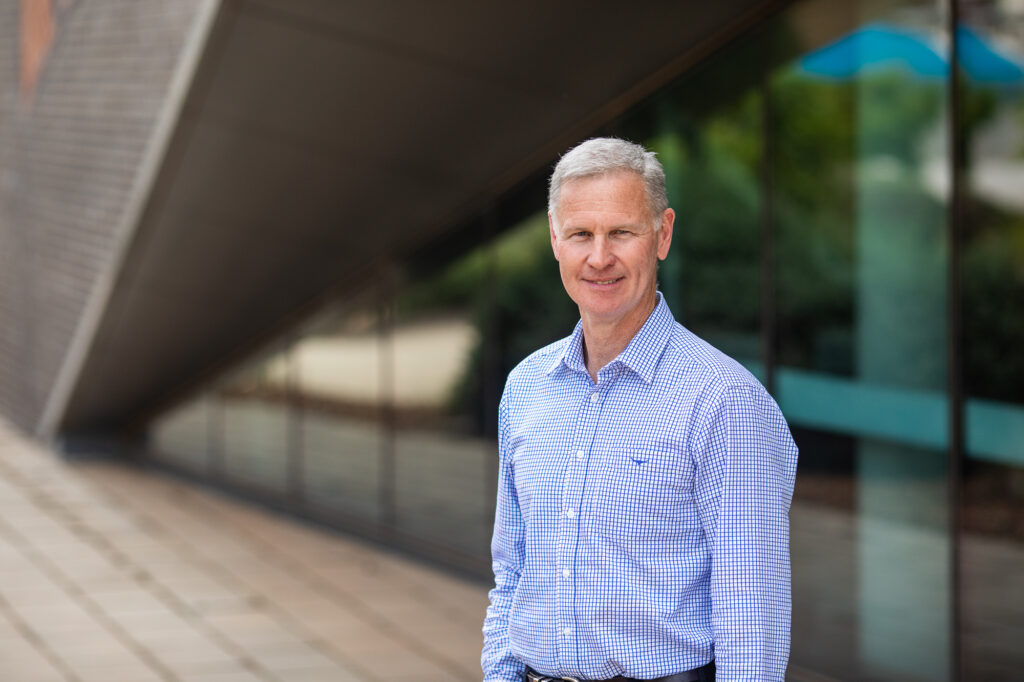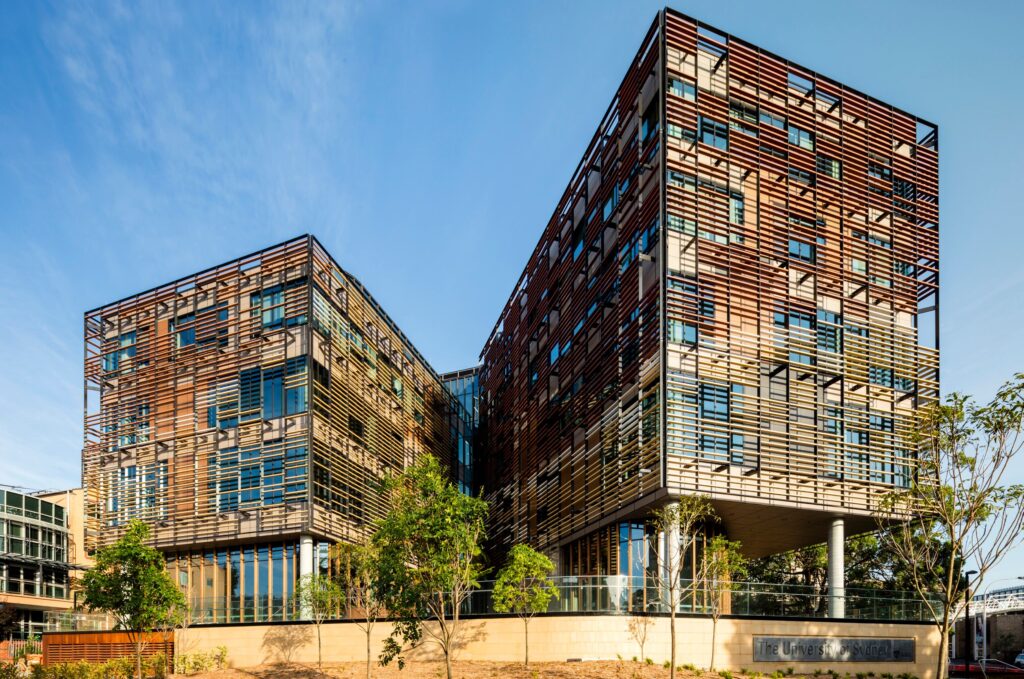A Chat with Mr John Harvey, AgriFutures Australia
By Christine Clark
For this issue of Poultry@Sydney, I was delighted to speak with Mr John Harvey, Managing Director of AgriFutures Australia.
AgriFutures Australia is one of 15 Research and Development Corporations (RDCs) that service the Research, Development and Extension (RD&E) needs of Australian rural industries.
I started by asking John to introduce himself to our readers.

Mr Harvey grew up in the suburbs of Sydney with a passion for agriculture. His introduction/interest began while visiting a family member’s dairy operation near Byron Bay during school holidays. This interest in agriculture led to high school science and then an agricultural science degree in Armidale (BSc., Rural Hons, University of New England).
Prior to joining what is now AgriFutures Australia in May 2016 as managing director, he held various positions at the Grains Research and Development Corporation (GRDC) spanning 18 years, including five years as managing director.
The RDCs collect levies from the participating industries with matching funds from the federal government. AgriFutures represents the research needs of 13 industries, ie., for chicken meat, rice, honey bee and pollination, ginger, tea tree oil, pasture seeds, export fodder, thoroughbred horses, kangaroo, buffalo, deer, goat fibre and ratite.
Mr Harvey then talked about the role of AgriFutures in the agricultural RD&E in Australia.
AgriFutures Australia has a unique role within the RDC system as the RDC responsible for investing in research and development to promote industry growth, sustainability, and resilience through innovation, learning and leadership in rural industries that do not have their own dedicated RDCs as well as high growth and emerging industries.
AgriFutures produces research and innovation outcomes that aim to give farmers and producers real returns as well as prepare them to thrive into the future.
The Australian chicken meat industry is a standout in the group, contributing over $3 billion in farm production value to the economy, with an estimated retail value of $6.6 Billion, and employs more than 58,000 people directly. This industry benefits from the outcomes that AgriFutures produces in collaboration with its research providers. The levies contributed to the RDCs by producers are matched by government funds and the money flows down to the different R&D corporations to improve profitability of the sectors. Negotiations with government are completed sector by sector.
To work closely with industry an advisory panel follows a strategic plan which identifies key areas that drives what happens next and where investments go. Additional benefits such as the consolidation of research using consortia, bringing together the best of the best and linking them with international experts. Such activities greatly enhance the ability of our researchers to leverage additional resources and facilities to address industry specific problems.
My next question to Mr Harvey was about some of the key projects that AgriFutures has funded.
Poultry research conducted by AgriFutures Australia aims to improve the productivity, sustainability, and welfare of the poultry industry in Australia.
Some areas of focus for poultry research at AgriFutures Australia are:
- To better understand and manage diseases that affect poultry. Such as avian influenza, Newcastle disease, and infectious bronchitis. This research helps developing strategies for disease prevention, control, and enhanced biosecurity measures.
- To promote the welfare and well-being of poultry. This includes studying housing systems, stocking densities, environmental enrichment, and understanding the behaviour and physiology of poultry.
- To improve the nutritional requirements of poultry, develop cost-effective and sustainable feed formulations, while optimising feed efficiency to enhance the overall health and performance of birds.
- To enhance the genetic selection and breeding programs for poultry. The focus is on improving traits such as growth rate, meat quality, disease resistance, and egg production to support the long-term sustainability of the industry.
- To explore sustainable practices in poultry production, including waste management, energy efficiency, and reducing environmental impacts.
Through these research efforts, AgriFutures Australia aims to provide evidence-based recommendations, innovations, and knowledge to the poultry industry. This will help the chicken meat industry to remain competitive and sustainable while being responsive to consumer demands.
What are the most pressing issues for the next five years?
The most pressing issues over the next five years for the chicken meat industry are probably issues broader than just the provision of quality chicken meat to the nation – social issues and community expectations. The Australian chicken meat industry is working to understand what is required to gain and sustain community trust. It is essential to build trust with people who have grown up in cities and are not exposed to the poultry industry and have no idea what is involved in producing chicken that they consume. Animal welfare is the No.1 concern where the trust needs to be made with the community. There are great facts on topics relating to the environment, included climate change mitigation, adaptation and resilience, feedstock and sustainable packaging are consumer concerns.
Chicken Meat has a relatively low carbon footprint and provides an essential affordable protein to consumers. As cost-of-living pressures increase, it is important for us let the consumer know that chicken meat is not only safe and nutritious but also affordable. These are critical points going forward.
Another important point is attracting the next generation of workforce into the chicken meant industry. A lot of thought has been put into getting people interested in Agriculture as a career. There are a lot of research possibilities here to attract a capable workforce in agriculture. Australia has a highly urbanised population with around 95% of us living in cities or major regional towns. We all have friends and relatives among them. We can introduce them to agricultural people one at a time and that relationship brings them into agriculture. These are small steps but can yield big outcomes for agriculture. Of course, we also need to have proper information and strategies to counter the negative perceptions for working in agriculture. When looking at the information gathered by focus groups, they perceive agriculture as physically demanding, polluting or having poor animal welfare. The facts are that 40% of the agriculture workforce come from the city. There are opportunities to gain higher wages and a better living condition. The work AgriFutures is doing is purposeful and with the generations coming through there is a sense of ‘we want to leave the world a better place, look after the environment and address climate change.’ We are not telling the story well enough. There are great opportunities to start a career in agriculture that could lead to many different industries. It’s not a yes/no question to working in agriculture but consider coming into it to gain skills, feed the world and have a rewarding life.
Thank you, Mr Harvey for talking to Poultry@Sydney.
Latest news
Our events
- Final Chance to Register for APSS 2026 – Less than 3 Weeks Away!With just under 3 weeks until APSS 2026, now is your last opportunity to finalise your registration for this year’s premier poultry science event.
Connect with us:


